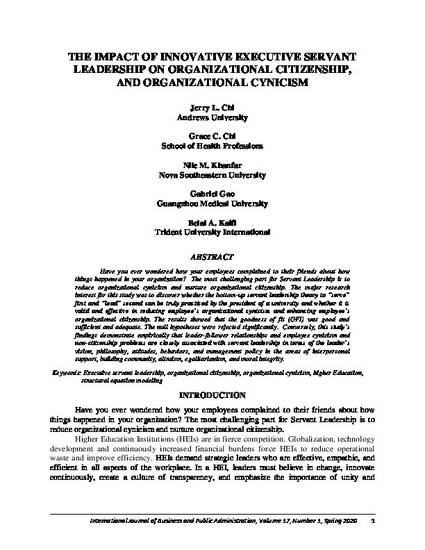
Have you ever wondered how your employees complained to their friends about how things happened in your organization? The most challenging part for Servant Leadership is to reduce organizational cynicism and nurture organizational citizenship. The major research interest for this study was to discover whether the bottom-up servant leadership theory to “serve” first and “lead” second can be truly practiced by the president of a university and whether it is valid and effective in reducing employee’s organizational cynicism and enhancing employee’s organizational citizenship. The results showed that the goodness of fit (GFI) was good and sufficient and adequate. The null hypotheses were rejected significantly. Conversely, this study’s findings demonstrate empirically that leader-follower relationships and employee cynicism and non-citizenship problems are closely associated with servant leadership in terms of the leader’s vision, philosophy, attitudes, behaviors, and management policy in the areas of interpersonal support, building community, altruism, egalitarianism, and moral integrity.
Available at: http://works.bepress.com/grace_chi/73/
